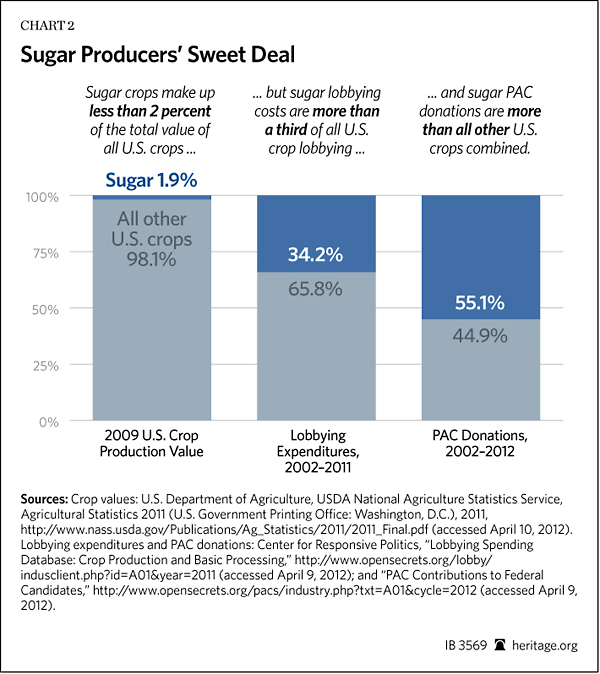The Depression-era sugar program was supposed to end in 1940. Instead, the Senate may soon vote on whether to extend it to 2017.
The sugar program inflates sugar prices by capping the amount that food manufacturers and consumers in the United States can buy from producers in other countries. If a bakery or a candy company wants to import more sugar than the amount Congress has dictated, it must pay a prohibitively expensive 15.36 cents per pound for raw sugar. A 15-cent tariff on top of the current world sugar price of 20 cents per pound works out to a whopping 75 percent tariff rate.
Last month, Americans paid 49 percent more for raw sugar than if they were allowed to freely import it. Clearly the sugar program is not a “no-cost” policy, as sugar producers assert, since it increases prices for everyone who buys sugar or products that contain sugar.
Sugar producers have invested heavily in lobbying activities and political donations to keep the sugar program in place. Sugar accounts for just 1.9 percent of the value of total U.S. crop production, but sugar producers fund 55 percent of crop-related political action committee donations and 34.2 percent of crop-related lobbying expenses.\
According to the American Sugar Alliance, seven out of 10 Americans prefer to buy homegrown sugar, even if foreign sugar is cheaper. Let’s find out if that’s true: Congress should let Americans choose how they want to spend their hard-earned dollars. Ending the sugar program would be a good start.
This piece originally appeared in The Daily Signal



